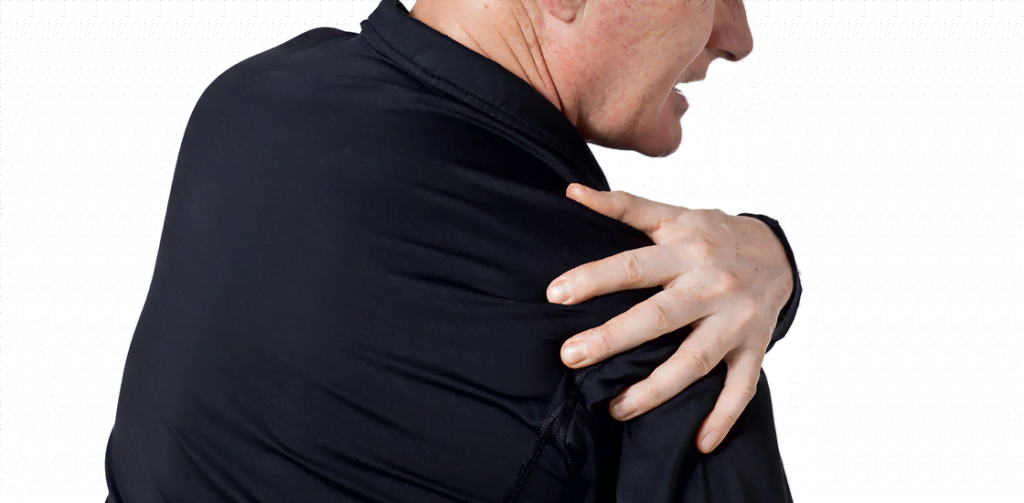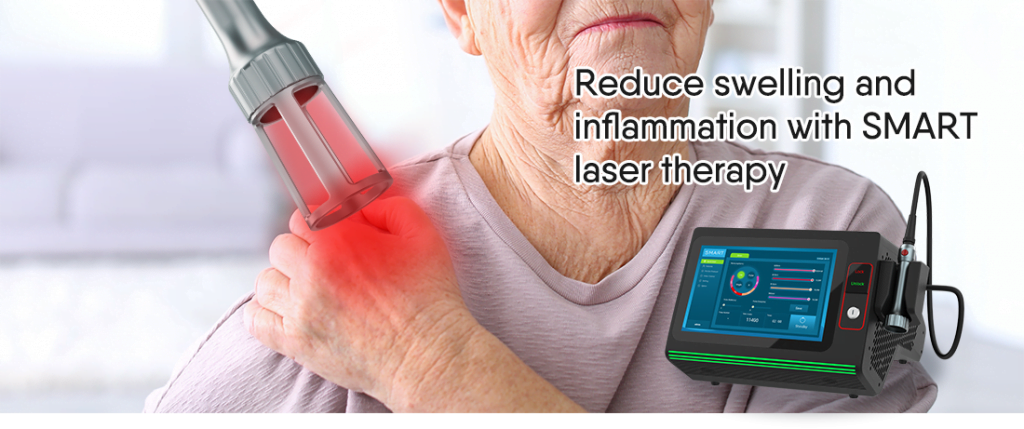Frozen shoulder
Frozen shoulder, also known as adhesive capsulitis, is a condition that affects the shoulder joint, causing pain, stiffness, and loss of range of motion. It occurs when the capsule surrounding the shoulder joint becomes inflamed and thickened, leading to the formation of adhesions or scar tissue.

Symptoms of frozen shoulder include:
Pain and stiffness in the shoulder joint
It typically develops slowly in three stages:
Freezing stage. Any movement of the shoulder causes pain, and the shoulder’s ability to move becomes limited. This stage lasts from 2 to 9 months.
Frozen stage. Pain might lessen during this stage. However, the shoulder becomes stiffer. Using it becomes more difficult. This stage lasts from 4 to 12 months.
Thawing stage. The shoulder’s ability to move begins to improve. This stage lasts from 5 to 24 months.
Treatment options for frozen shoulder include:
Medications: Over-the-counter pain medications such as ibuprofen or acetaminophen may be recommended to help alleviate pain.
Injections: Corticosteroid injections into the shoulder joint can help reduce inflammation and pain.
Hydrodilatation: Inject a sterile solution into the shoulder joint to expand the capsule and increase range of motion.
Manipulation under anesthesia: A procedure performed under anesthesia where the patient’s arm is moved into different positions to break up adhesions and improve range of motion.
Surgery: In rare cases where other treatments have not been effective, surgery may be recommended to remove scar tissue or release the tight capsule around the shoulder joint.
Physical therapy: Exercises and stretches are required to mitigate the pain.
Class 4 LASER THERAPY: It is a type of medical treatment that uses high-powered lasers to alleviate pain, reduce inflammation and promote tissue healing. It penetrates deeper into the body tissues than other classes of lasers and can be used to treat various conditions such as musculoskeletal injuries, arthritis, and neuropathic pain.
Class 4 LASER THERAPY for Frozen Shoulder:
Class 4 LASER THERAPY for frozen shoulder involves using high-powered laser beam to penetrate deep into the tissues of the shoulder, promoting cellular regeneration and reducing inflammation. This can help decrease pain, improve range of motion, and promote healing in the affected area, which can be helpful in treating frozen shoulder. This therapy is usually administered by a trained healthcare professional and requires several sessions for optimal results.
Frozen shoulder can be effectively treated with our class iv high power laser therapy machine. Class 4 laser therapy provides fast relief and promotes tissue repair for a better quality of life. With fast treatment time and minimal discomfort, you can get back to the activities you love in no time.

[1] Kim, S. H., Kim, Y. H., Lee, H. R., & Choi, Y. E. (2015). Short-term effects of high-intensity laser therapy on frozen shoulder: a prospective randomized control study. Manual therapy, 20(6), 751-757.
[2] Zhang, J., Zhong, S., Tan, T., Li, J., Liu, S., Cheng, R., … & Ye, X. (2021). Comparative efficacy and patient-specific moderating factors of nonsurgical treatment strategies for frozen shoulder: an updated systematic review and network meta-analysis. The American Journal of Sports Medicine, 49(6), 1669-1679.
Medical lasers
Professional CLASS 4 high-power laser therapy machine
Home use
Portable handheld cold laser therapy device
Veterinary use
Laser therapy machine, shockwave physical therapy, widely used in animals